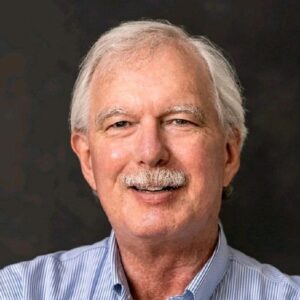Clean energy benefits discussed by CEO of First Nation economic development corporation

By Sam Laskaris
TORONTO – Don Richardson believes participating in clean energy projects can be win-win situations for First Nations.
Richardson is the president and CEO of Minogi Corp., which is the economic development corporation for the Mississaugas of Scugog Island First Nation.
Richardson was also one of the panellists at the Indigenous Clean Energy (ICE) conference, which was titled, The Gathering, held in Toronto from Nov. 27-29.
Richardson, who joined remotely, was on a panel called Energy Grids and Storage – Investing in a Cleaner Future.
Richardson said Mississaugas of Scugog Island First Nation got involved in energy storage projects about three years ago. It started off with a procurement process initiative looking at battery storage.
“I’m pleased to say this week we should be closing a commercial agreement with partners for three five-megawatt battery storage projects,” Richardson said during his panel, held on Nov. 28. “And we’re hopeful that we’re going to get engaged in more of these storage projects going forward because the Nation sees these as both something it can do to help the grid Ontario and at the same time generate significant revenue for the community.”
Richardson added the First Nation can then in turn utilize that revenue for other initiatives.
“The community can spend that on education, healthcare, various infrastructures, and have a much more vibrant and functioning community going into the future,” he said.
Richardson also said there is one main upside to clean energy ventures.
“The primary benefit is what many First Nations leaders call own-source revenue,” he said. “First Nations are largely dependent on federal transfer payments and various grant programs.”
He added this is not sustainable financially.
“And so, the more own-source revenue that First Nations can attract, the better,” he said. “And the beauty of the electricity system is particularly the investments that can be made to provide the 10- to 20- to 25-year returns. The Nations can then have other bankable projects that they can bring forward.”
The focus of Minogi Corp. is on clean energy and infrastructure projects as well as investment partnerships.
Richardson said his First Nation is not involved in token partnerships.
“These are very much real partnerships where First Nations have significant control over the planning process and the outcomes,” he said. “There are ways we can improve that. One of the things we’ve been working on from a regulatory policy point of view is looking to accelerate the initial time-frame that First Nations can get involved in projects.”
Richardson said this requires policy and regulatory changes.
Richardson also offered his thoughts on how to make partnerships work even better.
“I think right now for industry, and in the province, there needs to be a stronger recognition of the [United Nations] Declaration on the Rights of Indigenous Peoples and free, prior, and informed consent,”

